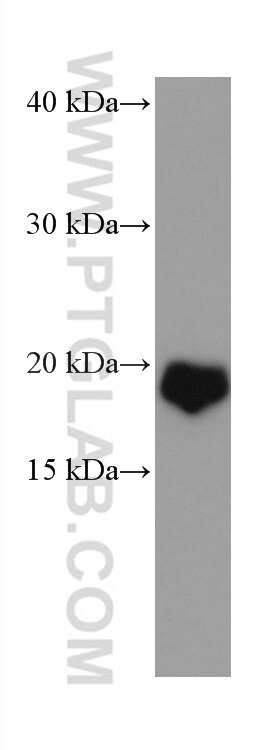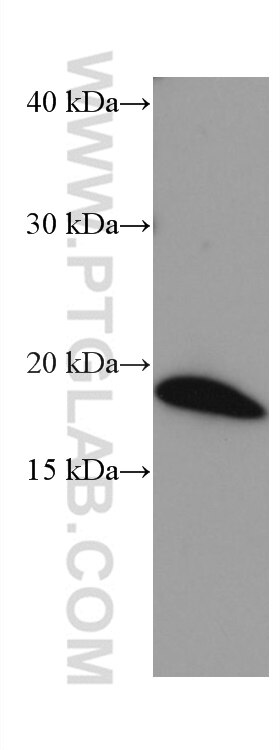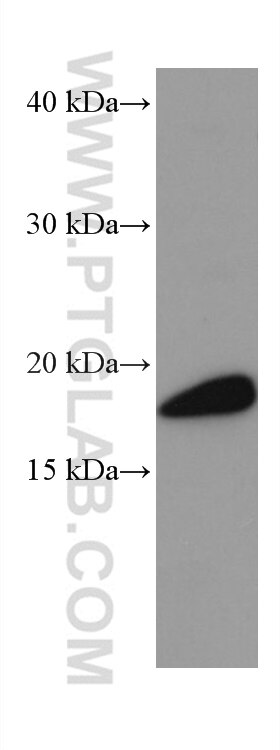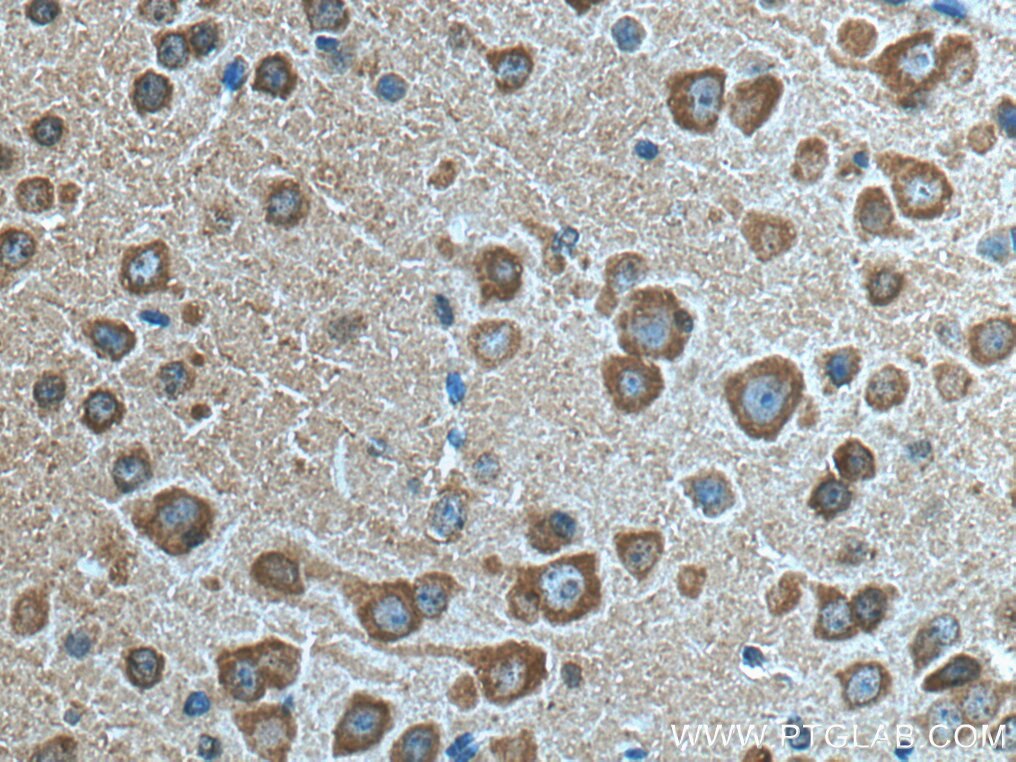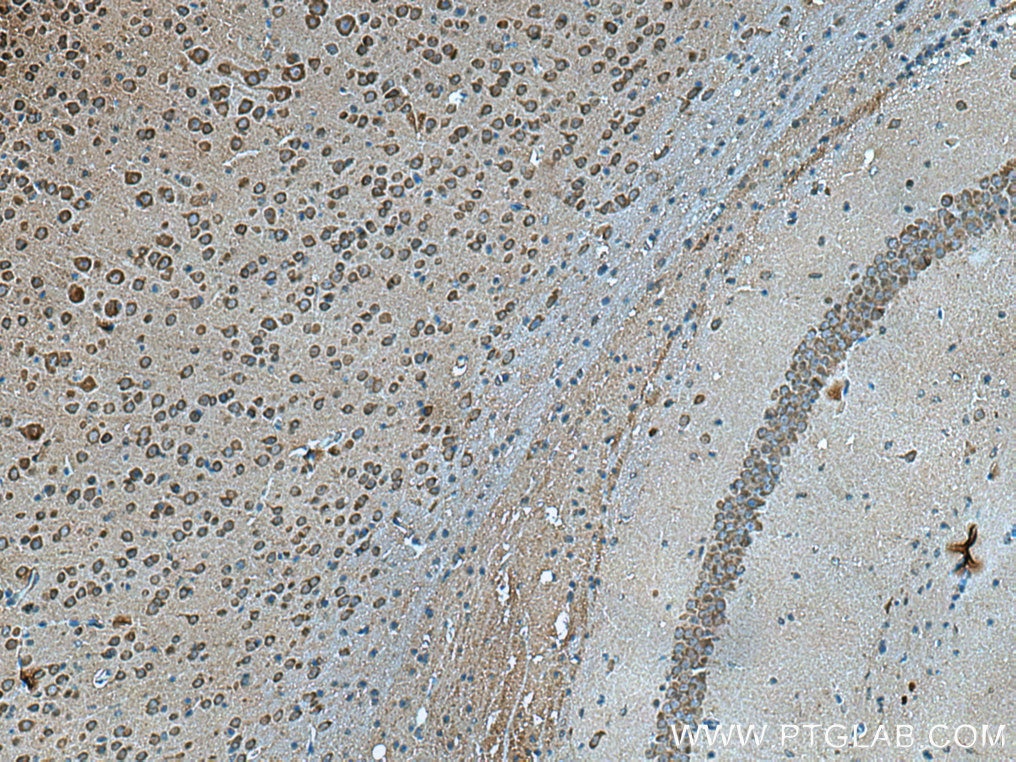Tested Applications
| Positive WB detected in | human brain tissue, rat brain tissue, mouse brain tissue |
| Positive IHC detected in | mouse brain tissue Note: suggested antigen retrieval with TE buffer pH 9.0; (*) Alternatively, antigen retrieval may be performed with citrate buffer pH 6.0 |
Recommended dilution
| Application | Dilution |
|---|---|
| Western Blot (WB) | WB : 1:1000-1:6000 |
| Immunohistochemistry (IHC) | IHC : 1:150-1:600 |
| It is recommended that this reagent should be titrated in each testing system to obtain optimal results. | |
| Sample-dependent, Check data in validation data gallery. | |
Published Applications
| IHC | See 1 publications below |
Product Information
67134-1-Ig targets VILIP1 in WB, IHC, ELISA applications and shows reactivity with human, mouse, rat, pig samples.
| Tested Reactivity | human, mouse, rat, pig |
| Cited Reactivity | human |
| Host / Isotype | Mouse / IgG1 |
| Class | Monoclonal |
| Type | Antibody |
| Immunogen |
CatNo: Ag4923 Product name: Recombinant human VSNL1 protein Source: e coli.-derived, T-HIS Tag: 6*His Domain: 1-191 aa of BC022012 Sequence: MGKQNSKLAPEVMEDLVKSTEFNEHELKQWYKGFLKDCPSGRLNLEEFQQLYVKFFPYGDASKFAQHAFRTFDKNGDGTIDFREFICALSITSRGSFEQKLNWAFNMYDLDGDGKITRVEMLEIIEAIYKMVGTVIMMKMNEDGLTPEQRVDKIFSKMDKNKDDQITLDEFKEAAKSDPSIVLLLQCDIQK Predict reactive species |
| Full Name | visinin-like 1 |
| Calculated Molecular Weight | 22 kDa |
| Observed Molecular Weight | 20 kDa |
| GenBank Accession Number | BC022012 |
| Gene Symbol | VSNL1 |
| Gene ID (NCBI) | 7447 |
| RRID | AB_2882433 |
| Conjugate | Unconjugated |
| Form | Liquid |
| Purification Method | Protein G purification |
| UNIPROT ID | P62760 |
| Storage Buffer | PBS with 0.02% sodium azide and 50% glycerol, pH 7.3. |
| Storage Conditions | Store at -20°C. Stable for one year after shipment. Aliquoting is unnecessary for -20oC storage. 20ul sizes contain 0.1% BSA. |
Protocols
| Product Specific Protocols | |
|---|---|
| IHC protocol for VILIP1 antibody 67134-1-Ig | Download protocol |
| WB protocol for VILIP1 antibody 67134-1-Ig | Download protocol |
| Standard Protocols | |
|---|---|
| Click here to view our Standard Protocols |

